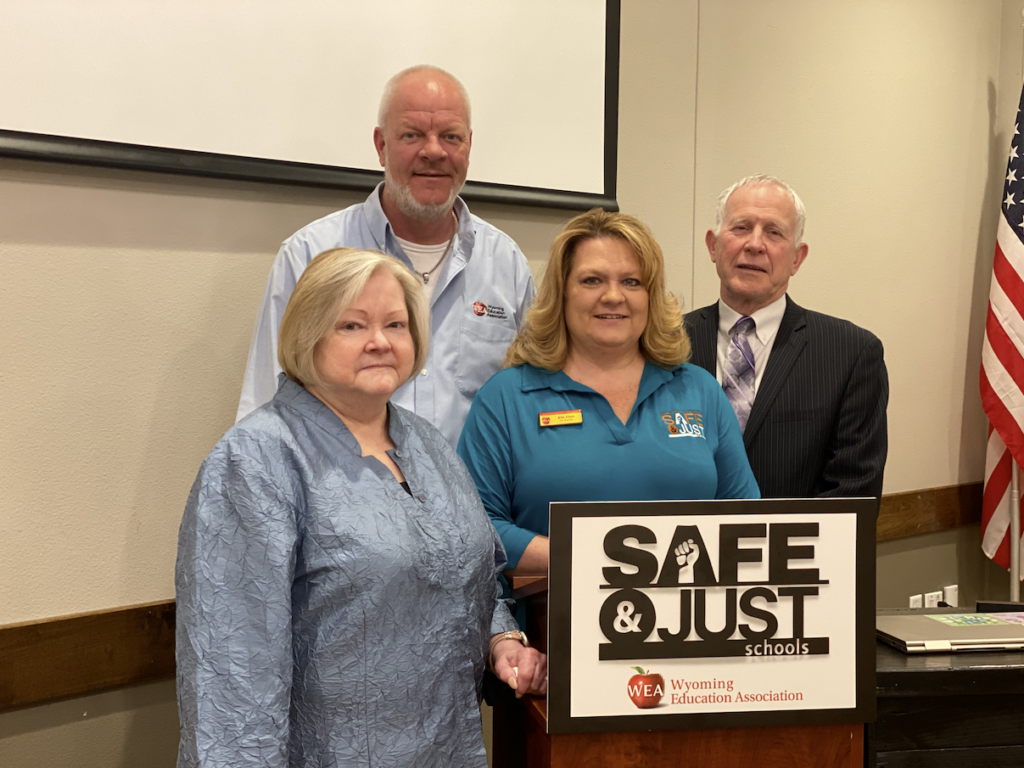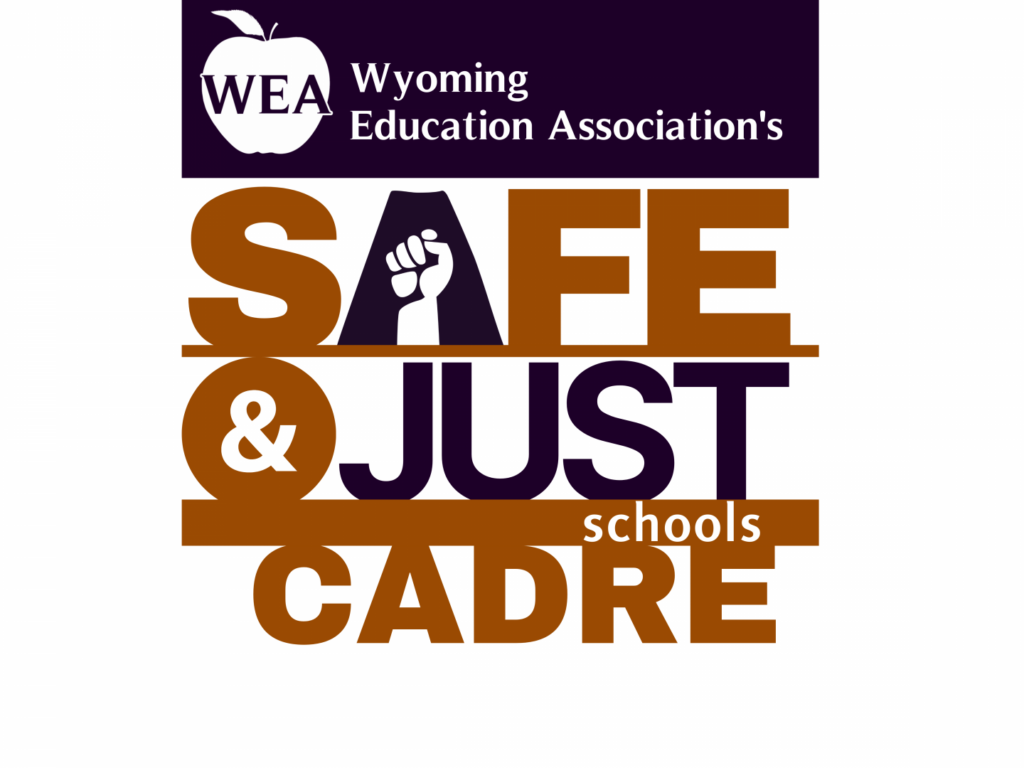
The Wyoming Education Association’s Safe & Just Schools Cadre is working to ensure that every student feels safe and welcome in all Wyoming schools. We’re accomplishing this by providing no-cost training to Wyoming educators.
Take a look at the six pillars of safe and just schools guiding the work of the Cadre.
Interested in hosting a training at your district, school, or local? Contact WEA Vice President Kim Amen at kamen@wyoea.org.

Effective education leaders should understand their emotions, thoughts, and values and how they influence their behavior across contexts. In other words, leaders must be self-aware. Leaders can develop their social and emotional intelligence by identifying their personal biases. Using this awareness, leaders can then explore how their biases formed and in what ways these biases limit leaders' growth and impact. This session will offer participants multiple resources to guide them through the process of self-discovery and reflection.
Using a variety of texts and purposeful protocols, this training explores why conversations are necessary and why they aren’t happening! What gets in the way? And what are the skills and strategies required to overcome barriers and engage in the conversations necessary to create safe and just schools?
As we engage in creating just and equitable schools, educators need to understand why sexual harassment is a problem in schools and how we as educators can combat it. Using Title IX data and stories from educators in K-12 schools (including students and employees), participants will better understand how to partner with your district’s Title IX coordinator to address and stop sexual harassment. This interactive session includes group-level work and uses scenarios to practice new skills and awareness in real-time. This session culminates in groups brainstorming solutions to disrupt the actual problems shared during Think/Pair/Share time with the goal of creating SMART Goals that other locals can adopt or adapt.
War, internment, segregation, and oppression characterize a dark side of Wyoming’s history. Together, we’ll explore historical events and tragedies in our state’s history that have contributed to shaping today’s society. We’ll put a spotlight on the uncomfortable realities of Wyoming’s past to ensure that the lessons there to be learned shape a brighter future for our students.
Creating safe and just schools require educators to understand LGBTQ+ issues in education. This session will help participants learn the advocacy skills needed to support all students within the school environment. The session introduces participants to LGBTQ+ specific vocabulary, as well as personal stories of coming out in Wyoming. Participants will explore their social identities and use them to relate to the experiences of other marginalized outside groups. Topics covered include students who identify as trans and their use of bathrooms, LGBTQ+ issues in sports, LGBTQ+ issues in education, gender fluidity, pronouns, and additional issues brought up by participants.
In this training, we will explore what defines social justice and what fits under that “umbrella.” What social justice issues are impacting our students’ learning? During this session, we will explore together ways each of us can activate change.
Exploring what cultural competence is and strategies to help us be more culturally responsive in our interactions with students and communities.
This training includes hands on activities, breathing techniques and science behind why staying grounded and regulating emotions is so important.
Address: 115 E 22nd Cheyenne, WY 82001
Phone: (800) 442-2395 Email: contact@wyoea.org